
Thank you for studying God’s precious Word. Many items are 25% off during the month of September as you get back to the books!
The New International Greek Testament Commentary: The Epistle to the Romans
This highly anticipated commentary on the Greek text of Romans by veteran New Testament scholar Richard Longenecker provides solid scholarship and innovative solutions to long-standing interpretive problems. Critical, exegetical, and constructive, yet pastoral in its application, Longenecker’s monumental work on Romans sets a course for the future that will promote a better understanding of this most famous of Paul’s letters and a more relevant contextualization of its message.
by Richard N. Longenecker (1930–2021) was a distinguished New Testament scholar who taught for many years at Wycliffe College, University of Toronto. He was the author of numerous books, including Paul, Apostle of Liberty; The Christology of Early Jewish Christianity; New Testament Social Ethics for Today; Introducing Romans: Critical Issues in Paul’s Most Famous Letter, and the New International Greek Testament Commentary volume on Romans.
theWord Features:
- Verse popups
- Verse (span) synchronization
- Fully searchable text
- Footnotes
- Pages links
- Index of Ancient Sources
- Easy navigation of topics via topics tree display.
- Special Text Colors
- Normal: Text
- Hyperlink: Gen 3:15
- Page Number: [pg 21>
- Greek: σκανδάλων
- Hebrew: לבנות
Basic Hebrew Package
Package: Wuest Word Studies & New Testament Expanded Translation
Kenneth Wuest was a long time Greek teacher at Moody Bible Institute back in 1920’s, ‘30’s, 40’s, and 50’s. (Yeah – he taught almost 30 years). At that time, Moody was one of the leaders in both dispensationalism and fundamentalism.
When he started writing, it was his intent to bring the nuance of the Greek language out for the non-Greek speaking English reader. This reviewer thinks that he hits that mark pretty well.
His first book was entitled Treasures from the Greek New Testament for the English Reader. This was a collection of twelve essays (which became twelve chapters – imagine that!) that are topical. His second book was a commentary on 1Peter entitled First Peter in the Greek New Testament for the English Reader (do you see a common theme?). It is pleasantly verse by verse.
Over the course of his writing career, he wrote commentaries on Mark, Romans, Galatians, Ephesians, Philippians, Colossians, 1Timothy, 2Timothy, Hebrews, 1Peter, 2Peter, 1John, 2John, 3John, & Jude. [If you’re keeping score at home, that means he missed Matthew, Luke, John, Acts, 1Corinthians, 2Corinthians, 1Thessalonians, 2Thessalonians, Titus, Philemon, James, and Revelation.]
In addition to his commentaries, he also wrote six topical books – all revolving around word studies in the Greek New Testament.
I’ve already noted that Wuest is both dispensational and evangelical in his doctrinal outlook. I also mentioned that in the era he wrote, Moody was considered a fundamentalist institution. That’s good.
I would like to point out that Wuest was not a KJV lover. He served on the translation team that produced the NASB. He actually published an entire expanded translation of the New Testament. But as you might think with his NASB background, his own translation is based on the Nestle Greek text, and not the Textus Receptus (which is the text behind the KJV). Personal kudos for rejecting the ASV; but he was one of the early proponents within the fundamentalist movement to depart from the KJV. He makes no apologies for correcting “error” in the KJV. For this reason alone, I don’t recommend this resource to anyone not grounded in bibliology.
Entry Length
Again, please note that his NT commentary covers only 15 books of the NT (of 27 total books); but because he left off four of the five longest books in the NT, his commentary actually covers far less than 50% of it. However, where he does have comments, they are more than sufficient. For me, they are right in the sweet spot between “sufficient” and “verbose” (I guess I like ‘em a little longer than sufficient…).
I like to provide an example from Rom 3:24 in these reviews. So here is Wuest on Rom 3:24 –
QUOTATION BEGINS – “Freely” is dōrean [δωρεαν], “freely, for naught, gratis, gratuitously, without just cause.” “Grace” is Charis [Χαρις] which signified in classical authors a favor done out of the spontaneous generosity of the heart without any expectation of return. Of course, this favor was always done to one’s friend, never to an enemy. But when Charis [Χαρις] comes into the New Testament, it takes an infinite leap forward, for the favor God did at Calvary was for those who hated Him. It was a favor clone out of the spontaneous generosity of God’s heart of love with no expectation of return. There are no strings attached to grace. It is given dōrean [δωρεαν], gratuitously. Of course, grace in the form of salvation is so adjusted that the one who receives it, turns from sin to serve the living God and live a holy life, for grace includes not only the bestowal of a righteousness, but the inward transformation consisting of the power of indwelling sin broken and the divine nature implanted, which liberates the believer from the compelling power of sin and makes him hate sin, love holiness, and gives him the power to obey the Word of God.
This grace shown the believing sinner is made possible, Paul says through the redemption which is in Christ Jesus. “Redemption” is apolutrōseōs [ἀπολυτρωσεως], the verbal form of which is apolutroō [ἀπολυτροω], “to redeem by paying the lutron [λυτρον] price.” There are three words translated “redeem,” agorazō [ἀγοραζω], “to buy in the slave market” (1 Cor. 6:20; 7:23, 2 Pet. 2:1), Christ bought us in this slave market of sin by His own blood; believers are His bondslaves; exagorazō [ἐξαγοραζω], “to buy out of the slave market” (Gal. 3:13; 4:5), the redeemed are never to be put up for sale in any slave market again; and litroō [λιτροω], “to set free by paying a price” (Tit. 2:14, 1 Pet. 1:18): the believer is set free from sin and free to live a life pleasing to God in the power of the Holy Spirit. The redemption price, the precious blood of Jesus, makes it possible for a righteous God to justify a believing sinner on the basis of justice satisfied. This Paul proceeds to explain in the next two verses. – QUOTATION ENDS
This might be a little longer than his typical comment, but you get the flavor here of how he writes.
Language Skills Needed
Did you remember the ending phrase in his titles? “…for the English Reader.” While a little bit of Greek is helpful (he does use words like “aorist,” “imperfect,” “middle voice,” and even “pluperfect,”), he actually does a pretty good job of explaining the importance of each of those words in his exposition. So Greek is helpful, yes, but not essential in profiting from this work. HOWEVER: keep reading for more info on the necessity of language skills.
Academic Target
Wuest and I are going to disagree on this. His work; my review. Wuest would tell you that his target was the Bible disciple who wanted to know more about his English Bible by expanding all of the nuances of the Greek into English. Fair enough. I would tell you that Wuest does not like the KJV, believes there to be translation errors in it, and those errors are due to the KJV coming from a corrupt Greek text. Hmmm. I have a problem with that.
Some of his comments are based on the Nestle text, which differs regularly from the TR. A knowledge of Greek will be very helpful – especially to those expositors who, like me, use the KJV/TR. When he makes an argument based on the Nestle text, it will be very helpful to know what the TR instead says. So due to his theological bias, I don’t recommend this resource to anyone who is not clear in his stance on bibliology. I have it tagged above as “Pastoral” for this reason.
And Then There’s All This Topical Content
Let’s not forget that he wrote six topical books, totaling almost another 100 chapters. From a personal perspective, this will be a harder tool to use (how are you going to find his interesting comments on “crowns” in a topical presentation?). But the writing is just as good, even though it may be hard to find.
Contents Conclusion
I like Wuest very much, as a matter of fact. It is too bad he did not finish all of the NT Books. I wish he had. And with the above mentioned foibles in mind, I recommend the use of his writing to you. This is a DDT approved Good Resource.
Strong’s Number Package
Package: Jon Courson’s Application NT & OT Commentaries
In a unique blend of pertinent information and inspiration, Jon Courson sheds light in a fresh way on the timeless truths of God’s Word. He has amassed a wealth of interesting topics in a very readable and comfortable expositional style. He combines thorough and comprehensive teaching of every paragraph of Scripture in the New Testament along with practical in-depth topical studies.
He has a unique ability to articulate the Bible’s truths with insight, focusing on valid life applications. This commentary is very useful for laymen as well as ministers of the gospel.
About the Author:
Jon Courson is one of the most exhilarating ministers today. In his unique style, Pastor Jon has written an Old Testament commentary that is a scholarly work, but is easy to read and makes practical applications for us in our daily walk with Jesus. This volume begins Jon Courson’s verse-by-verse commentary on the Old Testament. It is your opportunity to study the Bible with one of the great Bible teachers of our time.
See the excellent review below by DoctorDaveT
English Standard Version 2016
DESCRIPTION
The Bible
This Book [is] the most valuable thing that this world affords. Here is Wisdom; this is the royal Law; these are the Iively Oracles of God. With these words the Moderator of the Church of Scotland hands a Bible to the new monarch in Britain’s coronation service. These words echo the King James Bible translators, who wrote in 1611, God’s sacred Word . . . is that inestimable treasure that excelleth all the riches of the earth. This assessment of the Bible is the motivating force behind the publication of the English Standard Version.
Translation Legacy
The English Standard Version (ESV) stands in the classic mainstream of English Bible translations over the past half-millennium. The fountainhead of that stream was William Tyndale’s New Testament of 1526; marking its course were the King James Version of 1611 (KJV), the English Revised Version of 1885 (RV), the American Standard Version of 1901 (ASV), and the Revised Standard Version of 1952 and 1971 (RSV). In that stream, faithfulness to the text and vigorous pursuit of precision were combined with simplicity, beauty, and dignity of expression. Our goal has been to carry forward this Iegacy for this generation and generations to come.
To this end each word and phrase in the ESV has been carefully weighed against the original Hebrew, Aramaic, and Greek, to ensure the fullest accuracy and clarity and to avoid under-translating or overlooking any nuance of the original text. The words and phrases themselves grow out of the Tyndale King James Iegacy, and most recently out of the RSV, with the 1971 RSV text providing the starting point for our work. Archaic Ianguage has been brought into Iine with current usage and significant corrections have been made in the translation of key texts. But throughout, our goal has been to retain the depth of meaning and enduring quality of Ianguage that have made their indelible mark on the English-speaking world and have defined the Iife and doctrine of its church over the Iast five centuries.
theWord Features
• Fully searchable text
• Footnotes (F key toggles)
• Cross-references (X key toggles)
• Passage Headings (H key toggles)
• Poetry formatting or Verse-per-line (P key toggles)
• Words of Jesus Christ in red text (J key toggles)
Basic Greek Package
Theological Dictionary of the Old Testament, Volumes 1 – 17
Series Editors: G. Johannes Botterweck, Helmer Ringgren, Heinz-Josef Fabry
This multivolume work is still proving to be as fundamental to Old Testament studies as its companion set, the Kittel-Friedrich Theological Dictionary of the New Testament, has been to New Testament studies.
Beginning with ‘ābh (‘āb), “father,” and continuing through the alphabet, the TDOT volumes present in-depth discussions of the key Hebrew and Aramaic words in the Old Testament. Leading scholars of various religious traditions (including Roman Catholic, Lutheran, Reformed, Anglican, Greek Orthodox, and Jewish) and from many parts of the world (Denmark, France, Germany, Great Britain, Greece, Israel, Italy, the Netherlands, Norway, Sweden, Switzerland, and the United States) have been carefully selected for each article by editors Botterweck, Ringgren, and Fabry and their consultants, George W. Anderson, Henri Cazelles, David Noel Freedman, Shemaryahu Talmon, and Gerhard Wallis.
The intention of the writers is to concentrate on meaning, starting from the more general, everyday senses and building to an understanding of theologically significant concepts. To avoid artificially restricting the focus of the articles, TDOT considers under each keyword the larger groups of words that are related linguistically or semantically. The lexical work includes detailed surveys of a word’s occurrences, not only in biblical material but also in other ancient Near Eastern writings. Sumerian, Akkadian, Egyptian, Ethiopic, Ugaritic, and Northwest Semitic sources are surveyed, among others, as well as the Qumran texts and the Septuagint; and in cultures where no cognate word exists, the authors often consider cognate ideas.
TDOT’s emphasis, though, is on Hebrew terminology and on biblical usage. The contributors employ philology as well as form-critical and traditio-historical methods, with the aim of understanding the religious statements in the Old Testament. Extensive bibliographical information adds to the value of this reference work.
This English edition attempts to serve the needs of Old Testament students without the linguistic background of more advanced scholars; it does so, however, without sacrificing the needs of the latter. Ancient scripts (Hebrew, Greek, etc.) are regularly transliterated in a readable way, and meanings of foreign words are given in many cases where the meanings might be obvious to advanced scholars. Where the Hebrew text versification differs from that of English Bibles, the English verse appears in parentheses. Such features will help all earnest students of the Bible to avail themselves of the manifold theological insights contained in this monumental work.
Note: Print edition is 17 volumes.
Print pages/price per volume on 12/11/2021 from Eerdmans.com
Volume I: 501pgs, $66.50
Volume II: 508pgs, $75.00
Volume III: 483pgs, $66.50
Volume IV: 513pgs, $75.00
Volume V: 543pgs, $76.50
Volume VI: 513pgs, $76.50
Volume VII: 578pgs, $66.50
Volume VIII: 584pgs, $76.50
Volume IX: 589pgs, $76.50
Volume X: 616pgs, $76.50
Volume XI: 639pgs, $66.50
Volume XII: 636pgs, $67.50
Volume XIII: 677pgs, $79.50
Volume XIV: 726pgs, $84.50
Volume XV: 821pgs, $68.50
Volume XVI: 932pgs, $75.00
Volume XVII: 845pgs, $75.00
Total print pages: 10,704
Total print price: $1,248.50
theWord Features
- Verse popups
- Fully searchable text
- Footnotes
- Easy navigation of topics via topics tree display.
- Hebrew Lemmas: אָב
- Aramaic Lemmas: שׂגי
- Strong’s Numbers: H1
- Special Text Colors
- Normal: Text
- Hyperlink: lit | Luke 20:21
- Page Number: [v1 pg21>
- Latin: septuaginta
- Transliteration: môrāʾ
- Hebrew: אָב
- Aramaic: שׂגי
- Greek: σαμβύκη
Fundamentals of New Testament Criticism
theWord Features
- Verse popups
- Footnote popups
- Terms explained popups
- Fully searchable text
- Easy navigation via topics tree display.
- Special Text Colors
- Normal: Text
- Hyperlink: Nom | Rev. 7:12
- Page Number: [pg 21>
- Latin: exempli gratia
- Transliteration: ang-gelos
- Greek: σωμάτων
- Hebrew: א

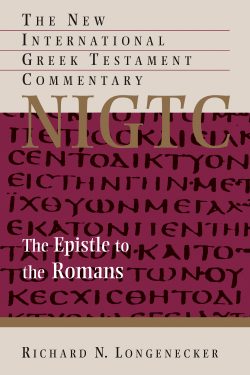
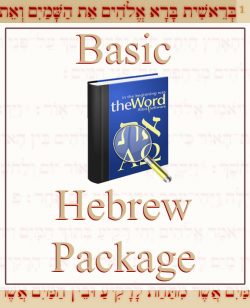
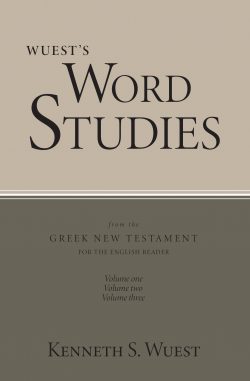
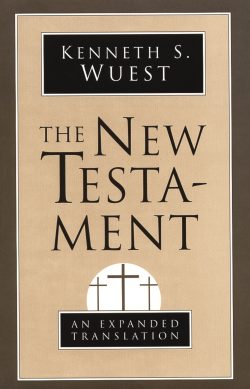

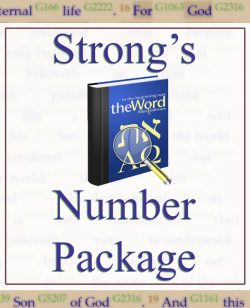
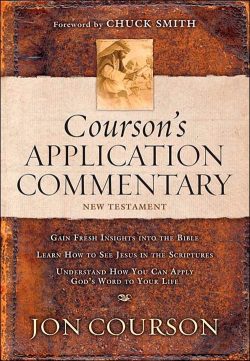
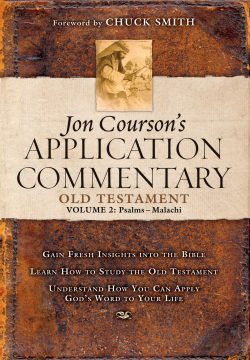

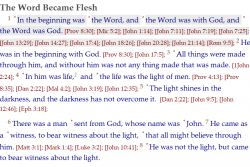
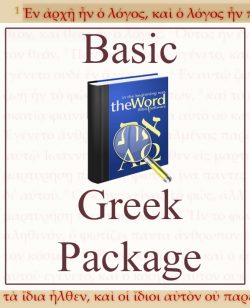
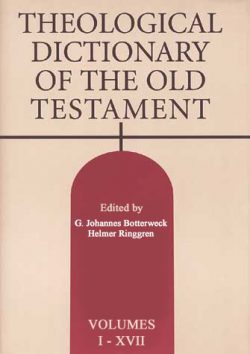
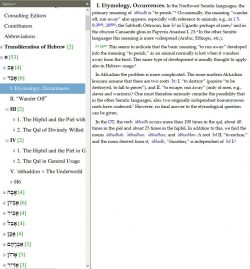
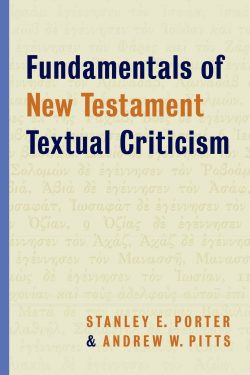
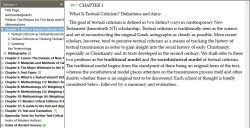
Package: NIV Application Commentary: New Testament
Description
The NIV Application Commentary helps you communicate and apply biblical text effectively in today’s context.
To bring the ancient messages of the Bible into today’s world, each passage is treated in three sections:
This unique, award-winning commentary is the ideal resource for today’s preachers, teachers, and serious students of the Bible, giving them the tools, ideas, and insights they need to communicate God’s Word with the same powerful impact it had when it was first written.
Volumes and authors in The NIV Application Commentary, New Testament Set: Matthew – Revelation, 20-Volume Collection include:
$688.80$516.60 Add to cart